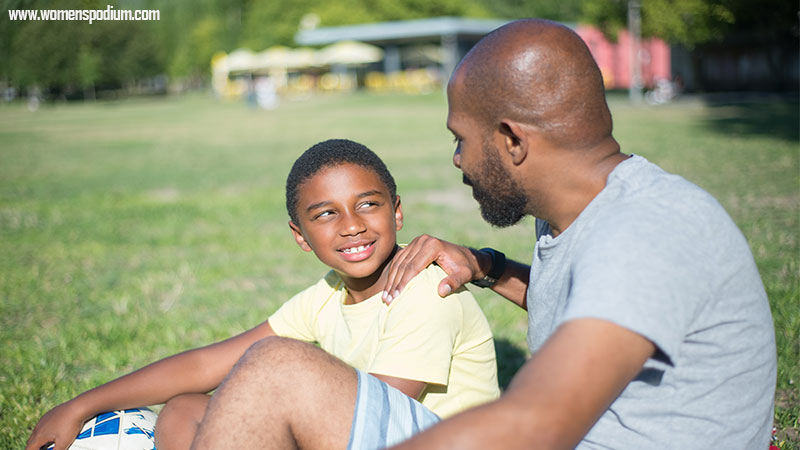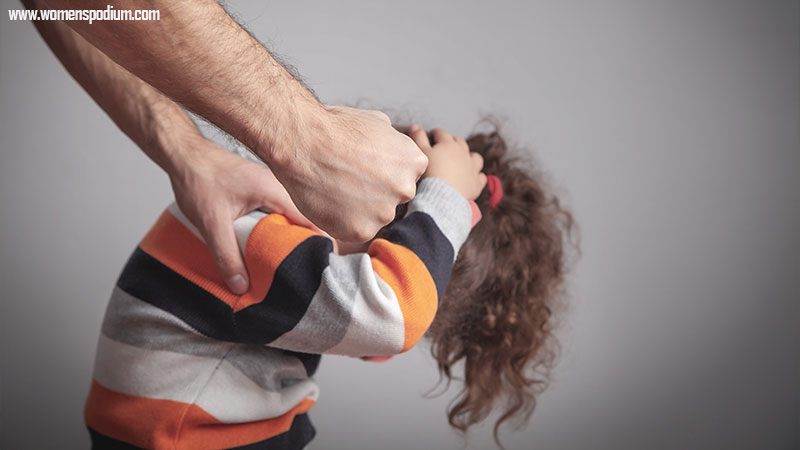
Aggression in young children is growing at a tremendously high rate in recent times. Parenting has truthfully become a big challenge now; you have to be very cautious while nurturing your child. In most cases, it’s the parent who is responsible for such behaviours. Studies on the child’s behavior show that the children adapt and learn things, good or bad, at the early stage of their life, so is with violent or aggressive behavior too.
Children and Learning
Usually, children tend to learn what they see in their day-to-day life. If they spend the most time at home, it’s the responsibility of the parents to provide proper guidance and support to their children. If required, parents should attend classes that teach positive ways to handle the difficulties in raising children. A child who stays more time in Child Day Care is more susceptible to being aggressive compared to a child who stays at home. However, the quality of the Day Care does make the difference. Choose high-quality day care for your child because they have more well-trained, sensitive and responsive caregivers. They teach good manners to the children and resolve any conflicts. Upbringing matters a lot, and if, as a parent, you fail to manage things at the right age, you will find it tough to deal with the issues of rude teen behavior when they reach adolescence.
Ways to Manage Aggression in Young Children
1. Your Love Matters the Most

Show your children your consistent love and affection. A child needs a strong and loving relationship with working parents. It gives the child a feeling of being safe and secure and develops a sense of trust. Give appropriate answers to every question they ask. Parents’ involvement with their kids is a proven technique and one of the pillars for child growth and development. Your love can change anything, and to your kids, your love is everything, and for a happy family, love and care stand first.
2. Seek Ways to Understand Them

Studies suggest that aggression in young children arises if they cannot convey what they want. Young children do not have language skills. They feel helpless because they do not know how to express their feelings. As parents, you are the ones who can open them to confide in you and to share their feelings. Young children always look up to their parents for everything, as when they grow up to their teenage, their peers are the ones who influence them most of the time. Taking action at the right time can solve any issues, be attentive when it comes to your child.
3. Know the Reason for their Aggression

As a parent, you are the one who suffers the most when your child behaviour is aggressive. So, try figuring out what is triggering anger. Why he is upset, or what is it that makes him angry. Try talking to talk to him, ask him if he is tired, not feeling well; something happened with his friends or in school; perhaps the things that look negligible to you matter to him the most. Sometimes even minor failure with his toys or losing a game can frustrate him, further resulting in aggressive behavior.
4. What do They Watch?

Now is the era of gadgets, smartphones, gaming consoles, and kids since their childhood are hyperaware of using these. Smart TV gives them access to the whole new world of the internet. Even now, parents love to play rhymes or teach their kids via YouTube, even my two-year-old niece knows how to swipe Instagram reels. I am sure kids at your home are smart enough to browse content on your phone or TV or tablet.
But here, the concern point is screen time and supervision. Studies on children’s behavior suggest that watching television programs without adult supervision may also lead your child to behave aggressively. Nowadays, not all but some dedicated children channels show some programs full of violence, improper language, etc. Ensure to monitor the YouTube channels or TV channels and programs your child is watching. Limit their screen time as children study, play, and entertain on screen these days. Besides these, take some time out to spend playing with your children; your involvement can bring positive changes in your kids.
5. No Adult Arguments

Any kind of harsh talk, loud arguments or verbal or physical violence in the home is another reason which can affect a child’s mental status and infuse aggression in young children. And if it continues regularly, then at some point, it can be extremely frightening and harmful to your child’s behavior, growth and development. Studies prove that the children who have seen violence at home tend to act aggressively. Therefore, parents must make their home a happy place to live for their kids and themselves too.
6. Encourage and Guidance

Children need encouragement, protection, and support from their parents and family members. Without proper supervision, children do not receive the guidance they need. Children who do not receive appropriate guidance and direction from their parents are more likely to have behavioral issues. It is either parent’s involvement or participation or guidance; everything positively impacts a child’s behavior, be attentive, and always be there for your children.
7. Inculcate the Importance of Respect

Teach your children to respect elders and their friends; children may sometimes act aggressively and hit other people. Don’t take such action lightly; talk to your children and make them understand what have they done. If even they don’t understand, send your child for a time-out for this behavior and repeat it whenever they behave like this next time. Do not forget to reward them for their good behavior. Praise them with words like ‘good job‘, I am proud of you‘, ‘well done‘, ‘bravo‘ and last but the least ‘I love you‘. Children will appreciate it as they are being rewarded for this behavior.
8. Be Observant

Sometimes children don’t share everything; they just keep it with them, thinking and seeking a solution in their own way. Here comes the parents’ role; your observation can make things fall into their natural place. Don’t hover or poke or harass your children to know everything, be a careful observer instead. Sometimes they need your support in resolving their issues, and sometimes young children solve their problems by themselves. In both cases, you have to be watchful and observing. Suppose if your child is playing online games with his friends or playing outdoors, do know with whom he is with. And, if in case he has some disagreements with his peers, don’t jump to solve everything by yourself. First, see how your child manages the situation; meddle only if you find it affects your child badly.
9. Avoid Physical Punishment

Punishing children for their misdeeds can also trigger aggression in young children. Sometimes children provoke you with stubbornness or misbehavior like teasing or hitting another person. It doesn’t matter how angry you are; you have to calm down and seek ways to punish in a way that shouldn’t hurt them physically or mentally. As a parent, you never hit or physically punish your child as children learn from elders.
10. Be Patient

As a parent, your role is critical—teaching manners and other social and life skills along with boosting self-confidence in your children is your prime duty. Aggression in young children is indeed challenging for parents to handle, but your patience can do wonders. Just be patient and try to understand, communicate and let your children trust you enough to share everything they feel or go through. Learning takes time, and be sure your patience will pay off in positively channeling your child’s energy towards their growth and development.
Aggression is common among young children. And you are not alone in dealing with this situation. In most cases, good parenting is required to get rid of this situation. Parents need to maintain proper discipline at home and let their children follow it. Do not let your children think that they are being neglected. Mold your children the way you want to see them grow.
Also Read: Even having a father throughout children upbringing, some children miss the father-child bonding due to unknown and unintentional reasons or ignorance, that deeply effects the behavior of children.





